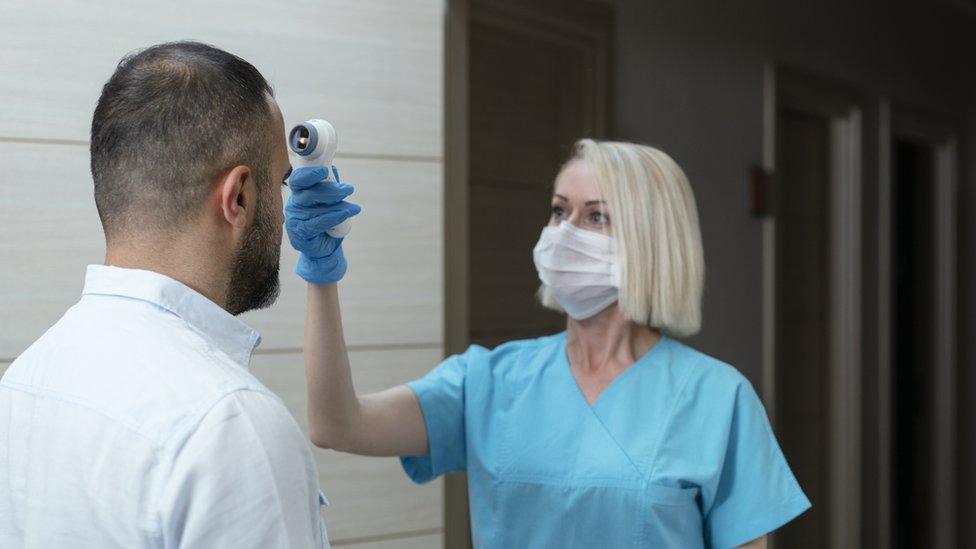Coronavirus in Scotland: Contact tracers 'will be ready' on 1 June
- Published
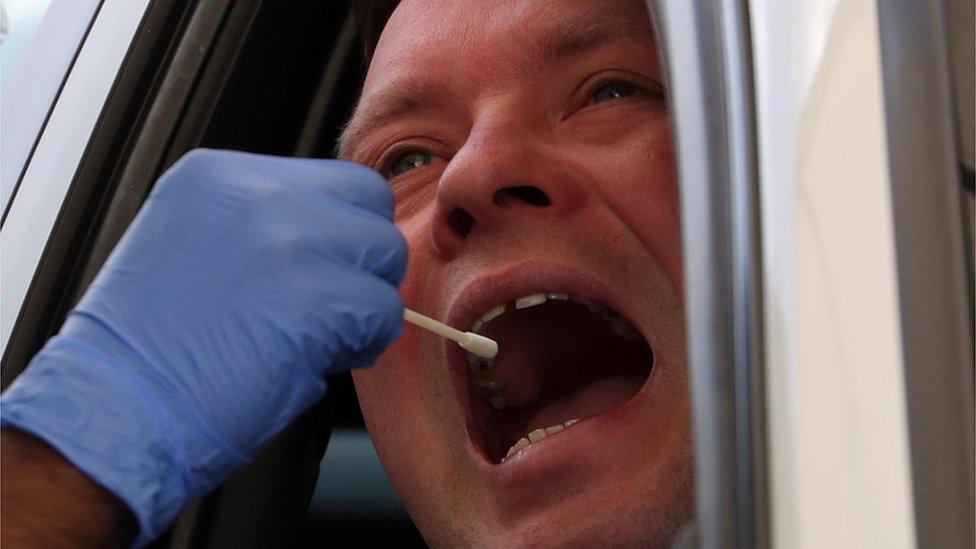
People who have been in contact with coronavirus cases will be tested
Health Secretary Jeane Freeman has promised that 2,000 workers will be "ready to be deployed" on Covid-19 testing and tracing on 1 June.
Speaking on the BBC's Good Morning Scotland programme, she said there were already 600 people ready to begin work.
Some of those deployed on coronavirus tracing will be existing employees of the health service.
Others are returning NHS workers, with a third group currently being recruited through an advertising campaign.
A test of the technical systems involved in the Scottish government's test, trace and isolate strategy is getting under way in three health board areas - Highland, Fife and Lanarkshire.
Ms Freeman said much of the preparation in Scotland involved the re-purposing of systems already being used by those who carry out similar tracing for sexually transmitted diseases and tuberculosis.
"We are using NHS technology that has been used for contact tracing in infectious diseases for some time now," she said.
"It is tried and tested technology but it needs scaled up considerably and we need to make it work for this particular virus.
"So what is being tested is the technology, making sure the software works, that it links with our NHS system and that the data it gathers is held confidentially so it is test run before we scale it up and use it across all our health boards."

The health secretary said the tracing team was ready to be deployed
Although the health secretary said 2,000 people would be available to be deployed two weeks from now, how many begin work at that time would depend on the number of cases.
She said: "Test, trace, isolate, support is triggered by an individual saying 'I have symptoms'.
"We then quickly speak to that individual, arranging to have them tested and beginning to identify who their contacts have been, tracing their contacts and speaking to them."
She added: "If we need more contact tracers we will get more contact tracers."
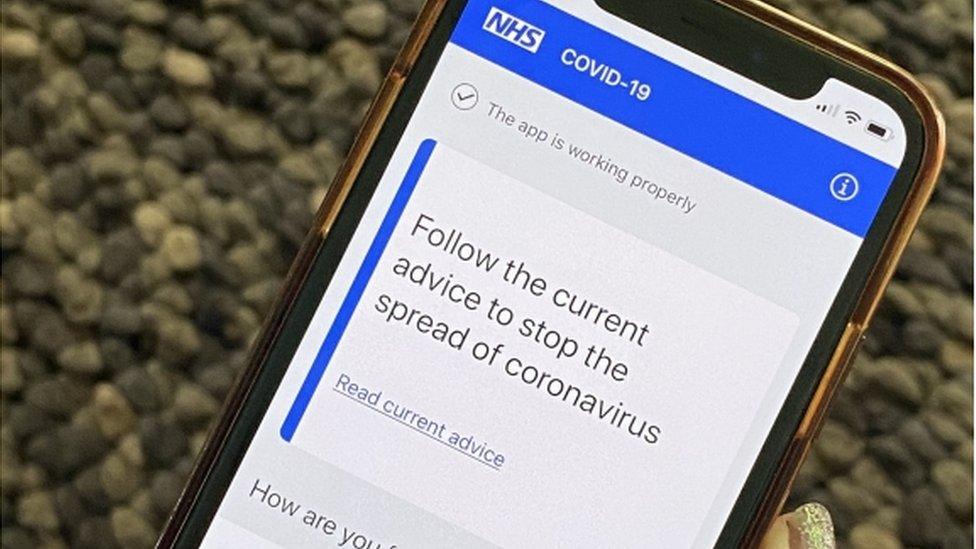
A tracing app for England is being tested on the Isle of Wight
The plan for Scotland does not include the use of the app piloted by the NHS in England which has been downloaded more than 55,000 times since being launched on the Isle of Wight.
The English app - available from Apple and Google's app stores - works by using a Bluetooth connection.
It records when two people who have the app are within a certain distance of each other for longer than a specified amount of time.
If one of those people later reports having symptoms, all the other app users they came into significant contact with over recent days will be alerted and, if judged necessary, told to self-isolate.
Prof Linda Bauld, a public health specialist at the University of Edinburgh, said the more traditional Scottish test, trace, isolate approach was "one of the main pillars of public health".
She told Good Morning Scotland: "It's something we've done for example in sexual health, in tuberculosis, in the past for rabies and even for polio.
"So it's something that's very familiar to public health."
- Published17 May 2020
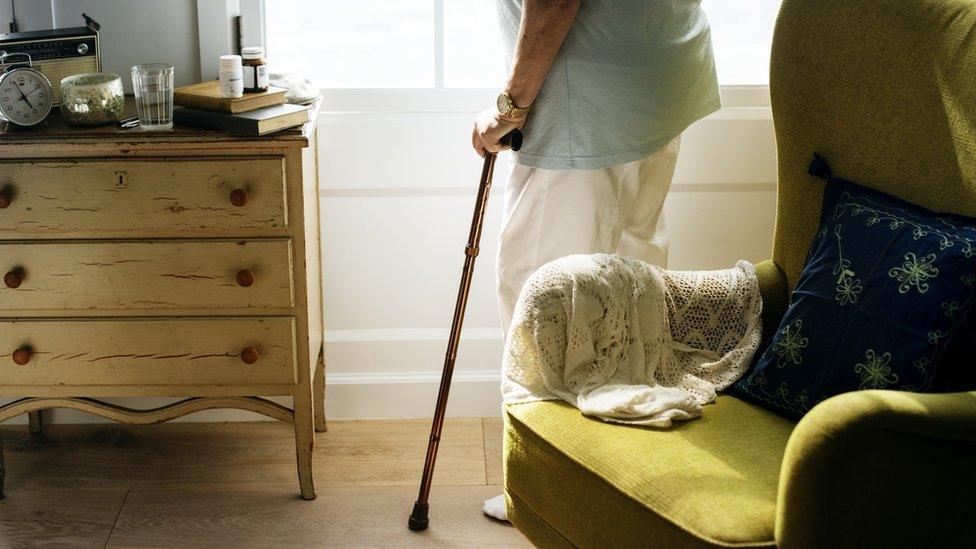
- Published26 May 2020
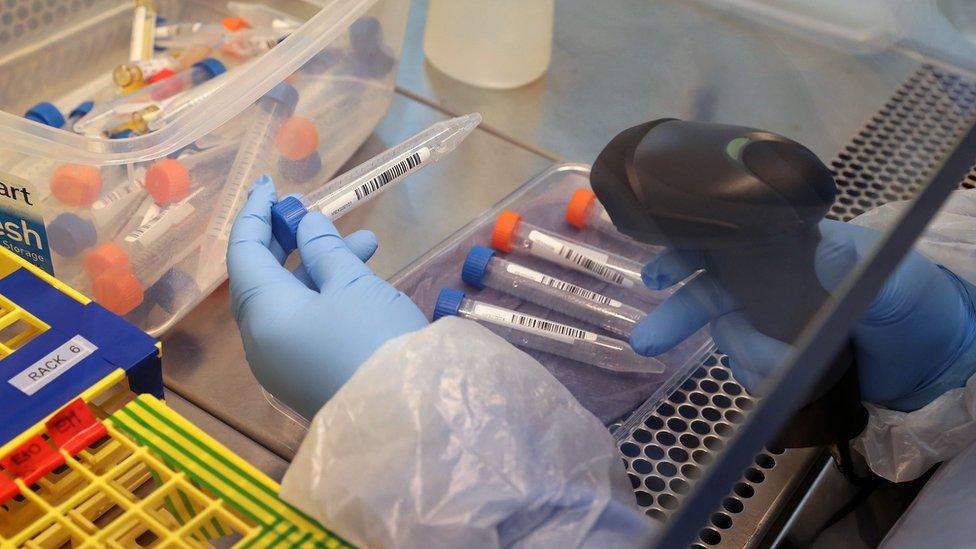
- Published4 May 2020
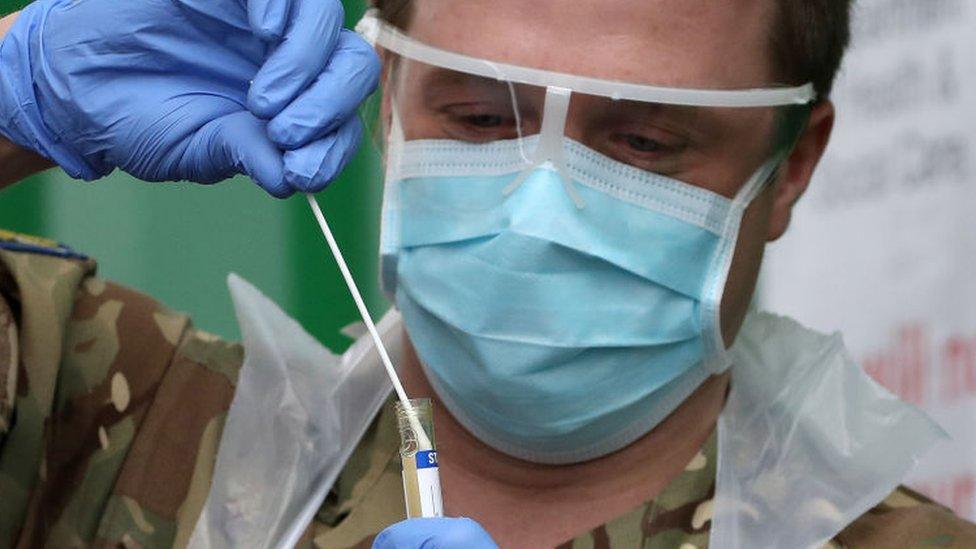
- Published17 May 2020
